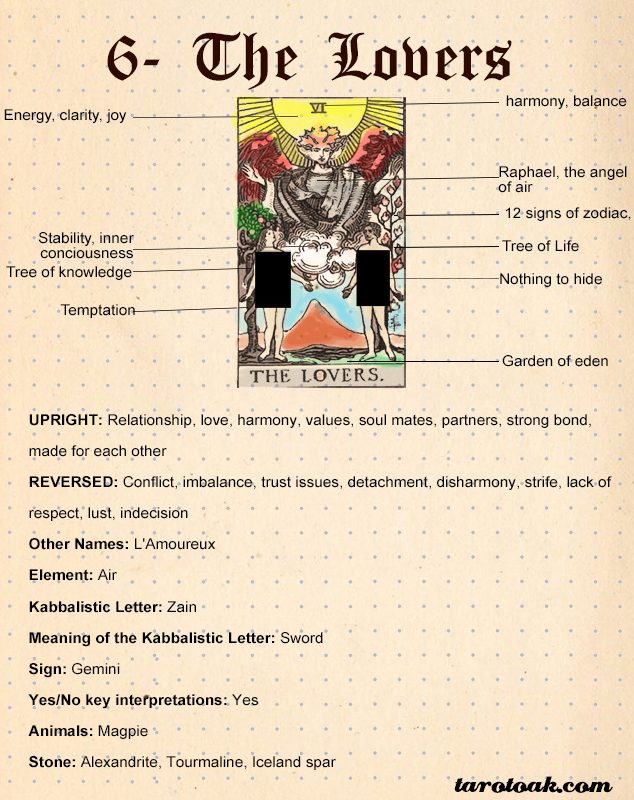Descending into the depths of Tarot symbolism, the Lovers card emerges as a profound representation of choice, union, and the delicate complexity of relationships. In the context of Christianity, this card can resonate on various levels, intertwining with biblical narratives and moral teachings. Recognized for its dual meanings, the Lovers card encompasses both the sacred and profane aspects of love, prompting reflection on the nature of commitment, fidelity, and divine affection.
The Lovers card, the sixth card in the Major Arcana, is steeped in rich iconography. Featuring a couple standing beneath an angel, often representing divine oversight, the imagery evokes thoughts of Adam and Eve—represents an archetypal love that ignites discussion around free will and God’s design for human relationships. In Christianity, the notion of love is central, encapsulated in concepts of agape (selfless love) and eros (romantic love). This juxtaposition epitomizes the broader theological discourse on love’s divine origins and earthly expressions.
In Christian theology, the act of loving encompasses more than mere romantic entanglement. The Lovers card can symbolize a pivotal decision point in one’s life; a robust reminder that choices are integral to spiritual growth. The biblical narrative often highlights the importance of decisions—think of Joshua and the Israelites choosing between serving God or the idols from their forefathers. This parallel emphasizes that every choice comes with consequences, a reflection resonant in the Lovers card’s core message.
When examining the Lovers card from a biblical lens, the significance of covenantal love unfolds. Christian doctrine emphasizes love as a covenant—a sacred bond instituted by God. This is mirrored in passages like Ephesians 5:25, which exhorts husbands to love their wives as Christ loved the Church. In this way, the Lovers card can encapsulate the idea of sacred vows, fidelity, and unconditional commitment, elevating romantic love to a spiritual dimension.
Moreover, the idea of duality—a prominent theme in the Lovers card—brings forth a dialogue about the oppositional yet complementary nature of relationships. The biblical concept of “two becoming one flesh” (Genesis 2:24) resonates profoundly with this theme. It encourages believers to see partnerships as reflections of divine unity rather than mere social contracts. This notion invites reflection on how personal relationships cultivate spiritual fulfillment and understanding.
In the exploration of relationships within Christian life, the Lovers card also prompts important values such as trust, respect, and communication. These elements are echoed in Colossians 3:14, where it is stated that love binds everything together in perfect harmony. Here, the card serves as a reminder that true love requires transparency and vulnerability, encouraging individuals to nurture authentic connections.
On another level, the Lovers card confronts readers with challenges of temptation and moral ambiguity. The scenario depicted in Genesis, with the apple and the tempting serpent, serves as an archetype for choices laden with ethical dilemmas. In this light, the Lovers card urges individuals to weigh their decisions carefully, taking heed of how their choices align with their values and beliefs. This perspective fosters a consciousness of self-examination, a tenet upheld in Christian morality.
Furthermore, the Lovers card can also symbolize the necessity of self-love. Christian teachings espouse the belief that to love oneself is a precursor to truly loving others. Understanding one’s own worth, made in the image of God, enhances the capacity to engage in healthy relationships. This revelation encourages believers to establish boundaries and seek harmony—an essential message against today’s backdrop of relational struggles and societal discord.
As one navigates through the layers of the Lovers card, an exploration of its potential implications for community becomes apparent. Within Christian teachings, love is not merely a personal affair; it extends into the realm of communal relationships. The Bible speaks frequently about loving one’s neighbor (Mark 12:31), reinforcing the idea that the lessons of the Lovers card can inspire collective compassion and unity. The card ultimately reflects the call for Christians to foster a sense of belonging, reinforcing relationships that manifest divine love in tangible ways.
Engaging with the Lovers card in this intricate Christian context invites believers to ponder love’s transformative power. It offers a unified vision of love as a spiritual force, intertwining the sacred and the secular. This exploration beckons readers to redefine love—not just as an emotion but as an active choice that requires commitment, sacrifice, and a deep adherence to one’s faith.
In conclusion, the Lovers card transcends mere romantic symbolism, weaving its narrative through theological, ethical, and communal dimensions. This intricate tapestry resonates deeply within the Christian faith, calling for reflection on the essence of love as divinely initiated, continuously woven through human experience. The card becomes a universal invitation to explore the multifaceted nature of love—an exploration that can enrich spiritual journeys and enhance interpersonal connections. With this understanding, the Lovers card remains not just a card of choice, but a beacon of hope and a guide toward a life aglow with love’s divine purpose.







Leave a Comment